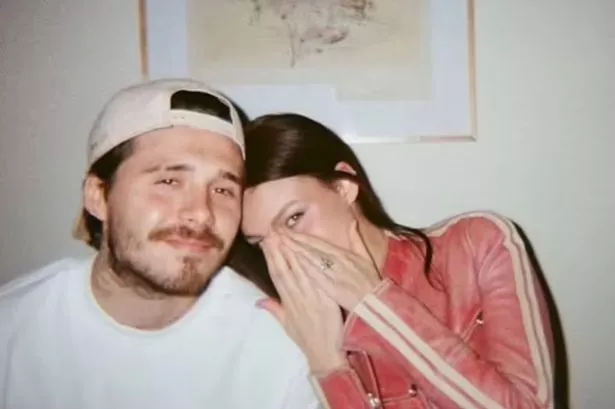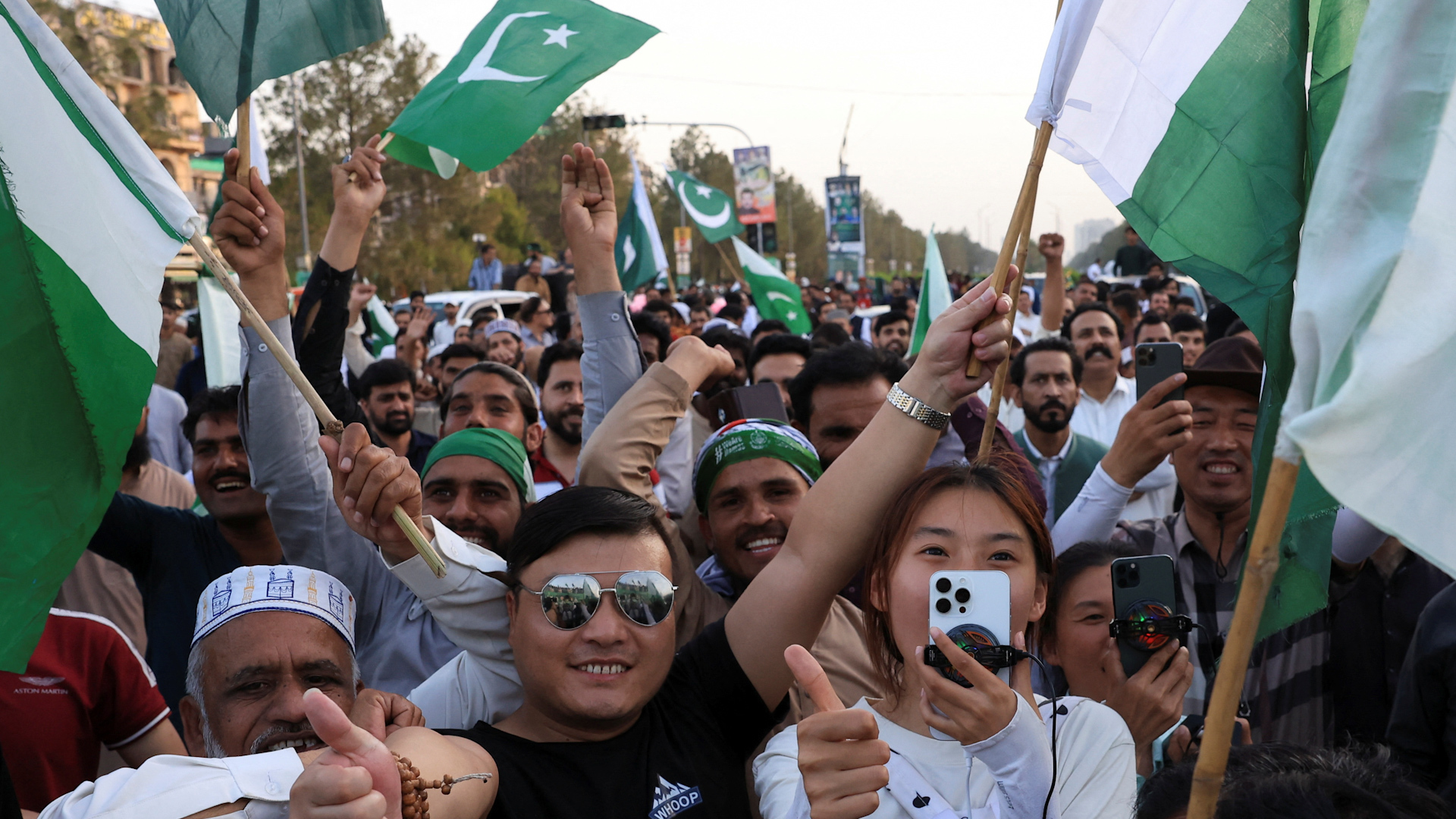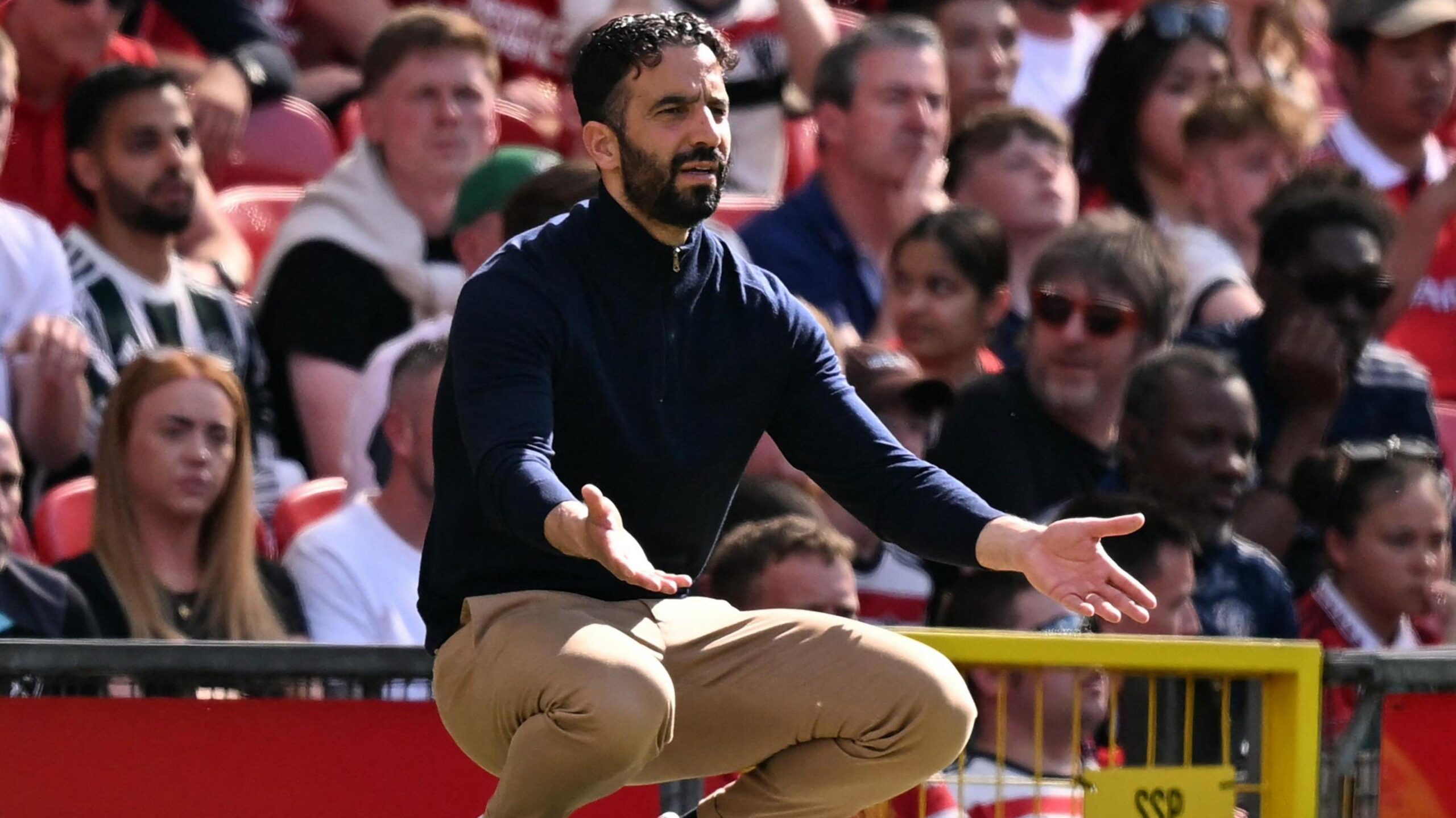Brooklyn Beckham and wife Nicola Peltz were all smiles as they partied with friends at a swanky restaurant in Los Angeles amid the fallout with his family
Brooklyn Beckham and his wife Nicola Peltz have proved they are capable of playing happy families – but with her relations! The married couple, who are locked in a bitter feud with Brooklyn’s parents and siblings, recently enjoyed a star-studded night out with Nicola’s brother and pals.
The former aspiring photographer, 26, and billionaire heiress Nicola, 30, have kept their distance from the Beckham clan both online and in the real world over recent works, with the pair even snubbing David Beckham’s 50th birthday earlier this month.
It’s thought the issues between the couple and David and Victoria Beckham stem from Romeo Beckham, 22, finding love with 24-year-old Kim Turnbull – one of Brooklyn’s exes! The rift has reported got so bad that Brooklyn has been ignoring his “concerned” parents attempts to reach out.
Amid the drama, Brooklyn and Nicola Peltz were all smiles as they enjoyed a night out with pals on Friday. Bates Motel actress Nicola, 30, was spotted alongside Brooklyn, 26, at the star-studded Angelini Osteria in Los Angeles, where they were celebrating actor Oliver Trevena’s 45th birthday.
Nicola and Brooklyn, who tied the knot in a lavish £3 million ceremony back in 2022, were tagged in a post by birthday boy Oliver, who shared a series of snaps from the party, captioning it: ‘Life just keeps getting better! What a night!”
Joining them were Nicola’s brother Will, 38, and his partner Kenya Jones, along with Hollywood stars Gerard Butler and Tony Curran. Also present were Riverdale heartthrob Hart Denton and Deadpool and Wolverine actor Lewis Tan.
Nicola’s close bond with her brother is a far cry from Brooklyn’s strained relationship with his siblings. The cooking enthusiast, who used to fill his Instagram with loving tributes to his parents and three siblings – Romeo, 22, Cruz, 20, and Harper, 13, hasn’t been seen in a photo with them since Boxing Day of the previous year. He also didn’t publicly recognise David and Victoria’s recent birthdays.
Over the weekend, David appeared to reach out to his eldest son amid the rift. On Sunday, Mother’s Day was celebrated in America – almost a month and a half after the annual holiday was observed in the UK. Despite being British, David took advantage of the symbolic day to post a photo of wife Victoria with all four of their offspring.
The ex-footballer shared a throwback snap of his wife Vicky, cradling their daughter Harper Seven as a baby on her chest, sided by their sons Brooklyn, Romeo, and Cruz hugging the singer-turned-fashion designer.
With the sweet photo, he penned: “Happy Mother’s Day to the best mommy. To all our friends in the U.S. Happy Mother’s Day.” Intriguingly, he made it a point to tag his sons, including Brooklyn. Fans are speculating whether this could be the footballer’s way of reaching out to his son through the Mother’s Day tribute.
This follows shortly after Brooklyn seemingly addressed rumours of a rift with his father during a weekend interview with The Sunday Times.
In the interview, Brooklyn spoke fondly of Formula E racing as common ground with his father, saying: “It’s something that me and my dad bonded over. My dad’s had some pretty cool cars.”











